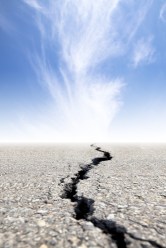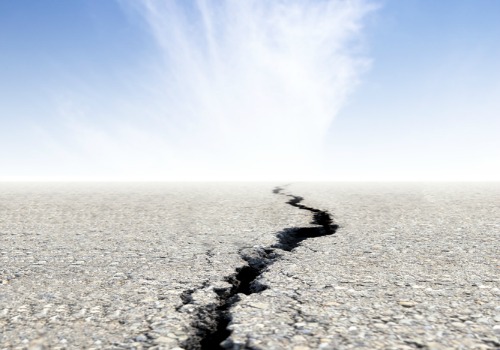
Photo by Shutterstock.
Those giant steel towers rising all across the United States — they aren’t sucking oil from the ground. They’re pumping water into it, building enough pressure to break the rock and release 10-million-year-old fossil fuel. This is hydraulic fracturing, better known as fracking, and fighting it has become the cause célèbre of filmmakers, politicians, movie stars, and activists.
For good reason: The Environmental Protection Agency has found that fracking chemicals can contaminate drinking water supplies, gas companies have laid waste to rural landscapes, fracking can release methane, a powerful greenhouse gas, into the atmosphere, and scattershot state and federal regulations allow drillers to keep the ingredients of their chemical cocktails secret. Fracking has even been linked to earthquakes.
Given all this, I’d be willing to bet a large part of my small salary that one of the following statements elicits a strong protest from those fighting the good fight against fracking. Ready? Here we go:
- “I don’t know of anything in my lifetime that has been so badly mischaracterized or blown out of proportion as this fear of fracking.”
- “There’s nothing about the hydraulic fracturing process itself that poses a danger.”
- “The shale gas revolution is the biggest revolution since nuclear went commercial.”
All three statements were made by Mark Zoback, a Stanford University geophysicist who has spoken before Congress on issues related to shale gas production. And before you heave your laptop out the window or dismiss Zoback as a fracking apologist, let me also say that all three of those quotes are taken deliberately out of context. Why? Because I think Zoback’s story mirrors the charged story of shale gas. He highlights an important distinction between the science of fracking and the practice — where statements about one are often taken out of context to support or attack the other.
My co-producer and Generation Anthropocene creator Mike Osborne sat down with Zoback recently to talk through the science of fracking and the environmental dangers posed by pumping chemically treated water into the ground. Listen closely, and you will never hear Zoback defend the practice. It’s the science that he stands behind, whether industry chooses to live by it or not. Ultimately, Zoback argues that “Switching from coal to natural gas is part of that process [of decarbonizing the energy sector]. It’s not the solution; it’s part of getting us where we need to go.”
It’s a conclusion that a growing number of environmentalists seems to be reaching as well. I would prefer that we didn’t get stuck with a choice between lesser evils. Let’s just hope that these short-term half-fixes are just that, and let the science provide the context for the practice instead of the other way around.
This interview is part of the Generation Anthropocene project, in which Stanford students partake in an inter-generational dialogue with scholars about living in an age when humans have become a major force shaping our world.



